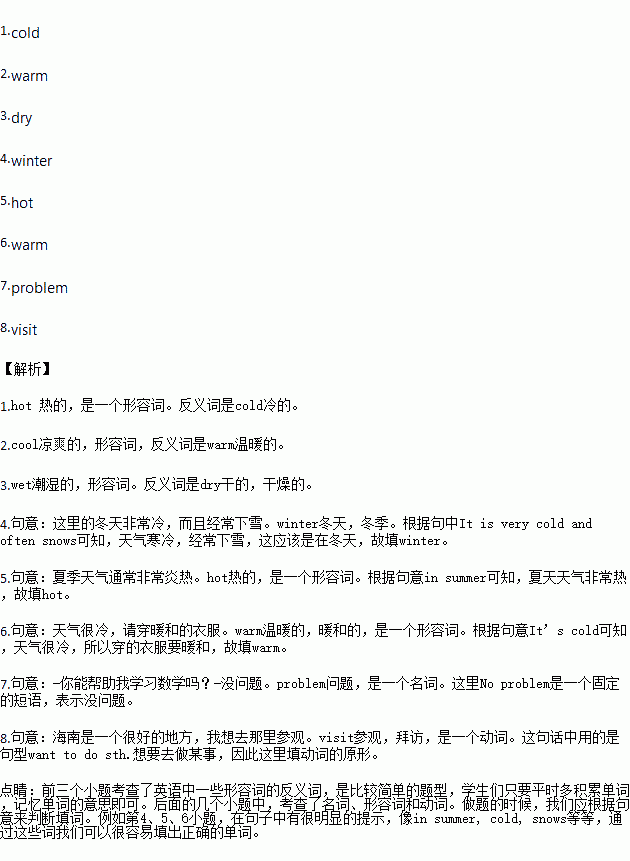题目内容
一、根据要求填空,并根据所给首字母提示,补全句中所缺单词。
1.hot (反义词) _____
2.cool (反义词) _______
3.wet潮湿的 (反义词) _____
4.It is very cold and often snows in w_____________ here.
5.The weather is usually h_____________ in summer.
6.It’s cold. Please wear w_____________ clothes.
7.—Could you help me with my math?
—No p_____________.
8.Hainan is a good place. I want to v_____________ it.
练习册系列答案
相关题目

